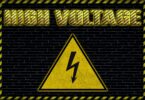Hidden fees are a problem that costs consumers billions of dollars every year. They can be frustrating to discover and can often make the final purchase price of products and services confusing. Consumers must be aware of these fees, which are typically regulated at either a state or federal level. A recent report by the National Economic Council found that these fees are deceptive and often muddy the consumer’s understanding of the price they are paying for a product or service. In addition, hidden fees are on the rise in the hotel and airline industries.
Hidden fees can cost consumers billions of dollars a year
Hidden fees are a common annoyance for consumers. Whether it’s a hefty cable bill or an extra fee for a sports ticket, consumers aren’t always aware of these charges until it hits them in the pocketbook. According to a recent survey by Consumer Reports, 85 percent of Americans have been hit with surprise charges in the last two years. The most common sources of hidden fees are telecommunication providers, live entertainment or sporting events, and gas and electric bills.
The first step to combating hidden fees is to become more aware of them. More Americans have started putting the word out on social media and filing complaints with companies over the practices. It’s crucial to recognize hidden fees so you can fight back. You can do this by reading the fine print on contracts and making sure you’re getting the right deal. You can also double check online purchases before you pay them.
In addition to hidden fees, there are some businesses that add on additional fees without telling you. For example, Verizon and AT&T both add a line access fee on top of the advertised prices for their phone services. These fees aren’t necessary for consumers to use their phone, but they are included in the basic price for the service. Another example is the hotel industry, which adds mandatory resort fees to customers’ bills. The industry’s revenue from these fees amounts to $2.04 billion annually, which is 16.6% of the total revenue.
The Consumer Financial Protection Bureau is moving to crackdown on these junk fees. The bureau released a report in December that estimated that consumers $15 billion each year. Bank of America has since reduced its overdraft fee to $10 from $35 and Capital One and Ally Financial have eliminated overdraft fees altogether. The bureau has set a March 31 deadline for public comment on the matter. The Bureau also indicated that the issue will remain a top priority during Chopra’s five-year term.
HOA fees are charged by a Homeowner’s Association to pay for maintenance of public areas, security, and other services
Homeowners’ associations are legal entities that are run by a board of directors. They set a monthly fee for each unit. This fee is separate from the monthly mortgage payment. The amount of the fee is determined based on the association’s expenses.
The fees for different properties are different. Condos, for example, are generally cheaper than coops. This is because a condo is owned by the owner, so the fee amount is generally lower. Additionally, taxes are not included in HOA fees, so homeowners in a condo pay their taxes separately. In addition, they pay for maintenance fees separately from taxes. In addition, they may need to pay for special projects or emergency repairs.
In addition to providing security, HOA fees are usually used for common amenities like exterior home maintenance and landscaping. They can also cover utilities. If an HOA has a master insurance policy, homeowners can expect their insurance costs to be less.
HOA fees depend on many factors, including location, size, and amenities. Some communities charge less than a few hundred dollars a month, while others can cost more than a thousand dollars per month. As a result, it is important to do some research before choosing a unit to live in.
Hidden fees can be turned into cash
Hidden fees are a common occurrence in the world of travel. They cost consumers billions of dollars every year and make big profits for corporations. These fees are typically regulated at the federal or state level. Hidden fees can be confusing and make a purchase price look much higher than it really is. They have also been increasing steadily in the hotel and airline industry. Fortunately, there are ways to avoid paying them.
The first step to avoid hidden fees is to find out the fees you have to pay before signing any contracts. Many banks charge a fee to cancel a cheque. These fees can be up to PS11, but do not apply to checks stolen from someone’s account. Likewise, a bank may charge an inactivity fee if you have an account for an extended period of time without using it. The bank may try to close your account if you are inactive for months at a time. In addition, the bank may charge a monthly payment for this inactivity.







Leave a Comment
You must be logged in to post a comment.